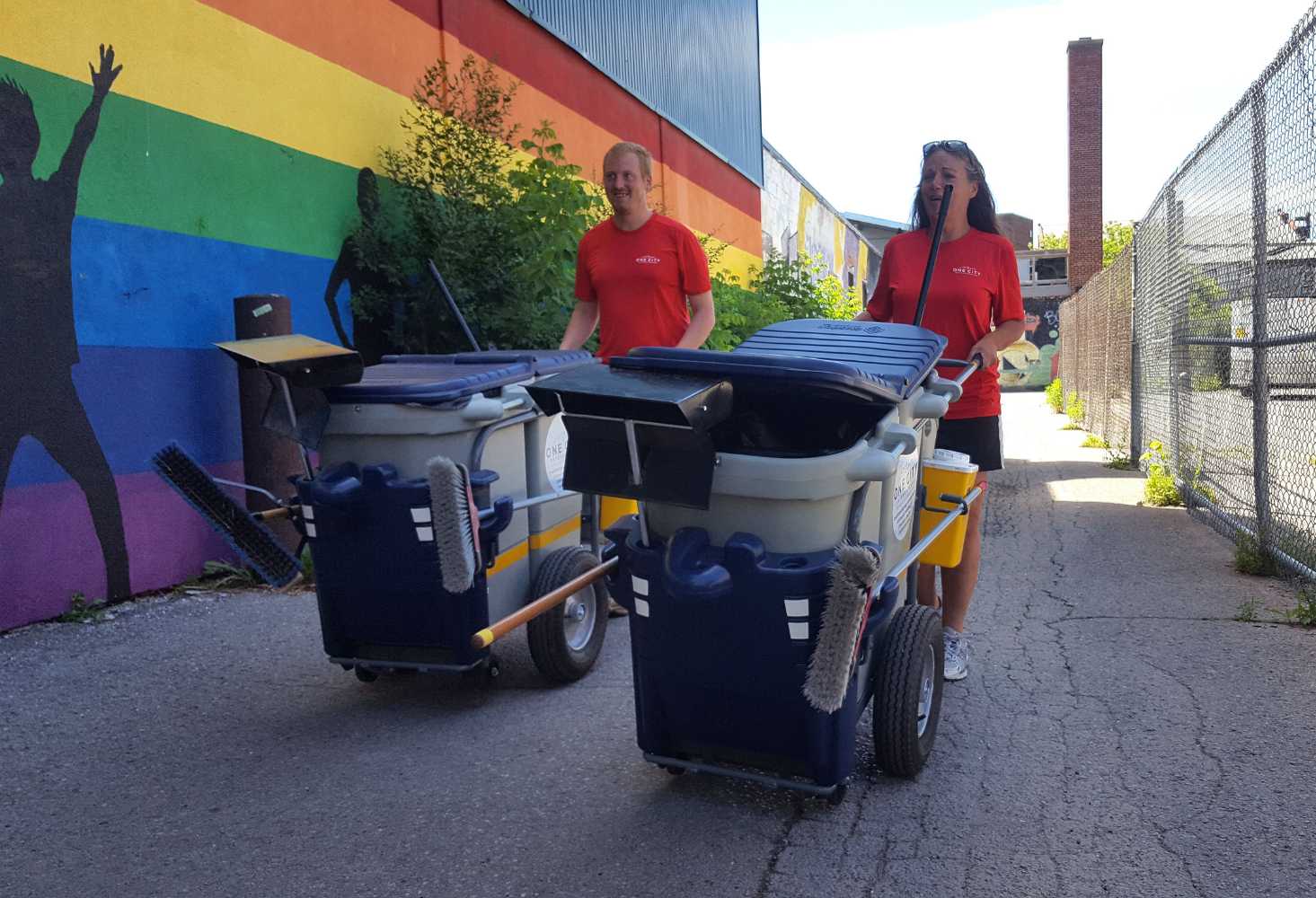In the downtown cores of many Canadian cities, the effects of social issues like the opioid crisis, insufficient mental health supports and homelessness are easy to see.
“We see a lot of people who are struggling with these issues right in front of us in our downtown,” says Marty Williams, executive director of Guelph’s downtown business improvement area (DBIA). And Guelph is not unique, he says. “In every BIA that I talk to in a city of any size, we’re all struggling with the same issue.”
You may unsubscribe from any of our newsletters at any time.
Downtowns are cultural and economic centres, and are often where social services like addictions treatment and housing supports are located. As a result, they attract a diversity of people, and the different groups don’t always appreciate each other. Some small businesses fear that they’ll lose customers due to the presence of people who are street-involved or impoverished.
Rather than covering the issue up, or trying to push marginalized people out of local downtowns, some business improvement areas have come up with projects that aim to make downtowns more inclusive and include marginalized people in the process.
In Kitchener, Ont., the DBIA funds a program called the Discovery Team, in which street-involved people are hired to work alongside an outreach worker downtown. The Discovery Team’s job is to respond to mental health incidents, connect people in need with the appropriate social services, and maintain a positive presence in the streets.
Joe Mancini, who helped design the Discovery Team initiative, says that people with street experience are best qualified to support the downtown community in this way, because they’ve already built the right relationships. “You have to know the people, you have to be connected,” he says.
Since it launched in 2017, the Discovery Team has led to a significant drop in calls to police over issues like vagrancy and mental health episodes, neither of which always warrant a police response.
Mancini, who is the founder of a non-profit that creates opportunities for the unemployed, says it’s all about “a downtown where people work together and have a culture of engagement.”
“That’s really different than a downtown that says we have to keep the sidewalks free only for people who are shopping,” says Mancini. “It’s a recognition that the downtown is for everyone.”
A similar initiative is underway in Peterborough, Ont., where rhetoric about “cleaning up the streets” has been used against low-income people and shopkeepers have accused panhandlers of hurting their business by hanging out in the street.

In response, Peterborough’s DBIA has started a program in which it hires 11 street-involved or otherwise marginalized people to work as cleaners in the city’s core. The project, called One City Peterborough, is meant to support people with low incomes while demonstrating that everyone downtown has a positive contribution to make.
The One City pilot started in June, and has funding to run until the end of September. Within a few weeks of launching, participants already said they felt more included and appreciated in the downtown community.
“On our first shift, we had at least six people thank us for what we were doing,” one of the cleaners told TVO during a shift in June. “That was really uplifting and really motivating.”
Meanwhile, Guelph’s DBIA launched its own pilot project in July called Welcoming Streets. For five months, an outreach worker from the Guelph Community Health Centre will provide support downtown and take the place of police as a first responder to many incidents involving mental health, addictions, and poverty.
Williams says investing in better support for marginalized users of the downtown is a trend among local business improvement areas, at least in Ontario, and he doesn’t deny that the motives are at least partly business-driven. “We’ve made no bones about the fact that our mandate is to help businesses survive and thrive,” he says. “But if we can do well by doing good, as they say, there’s nothing inconsistent about that.”













